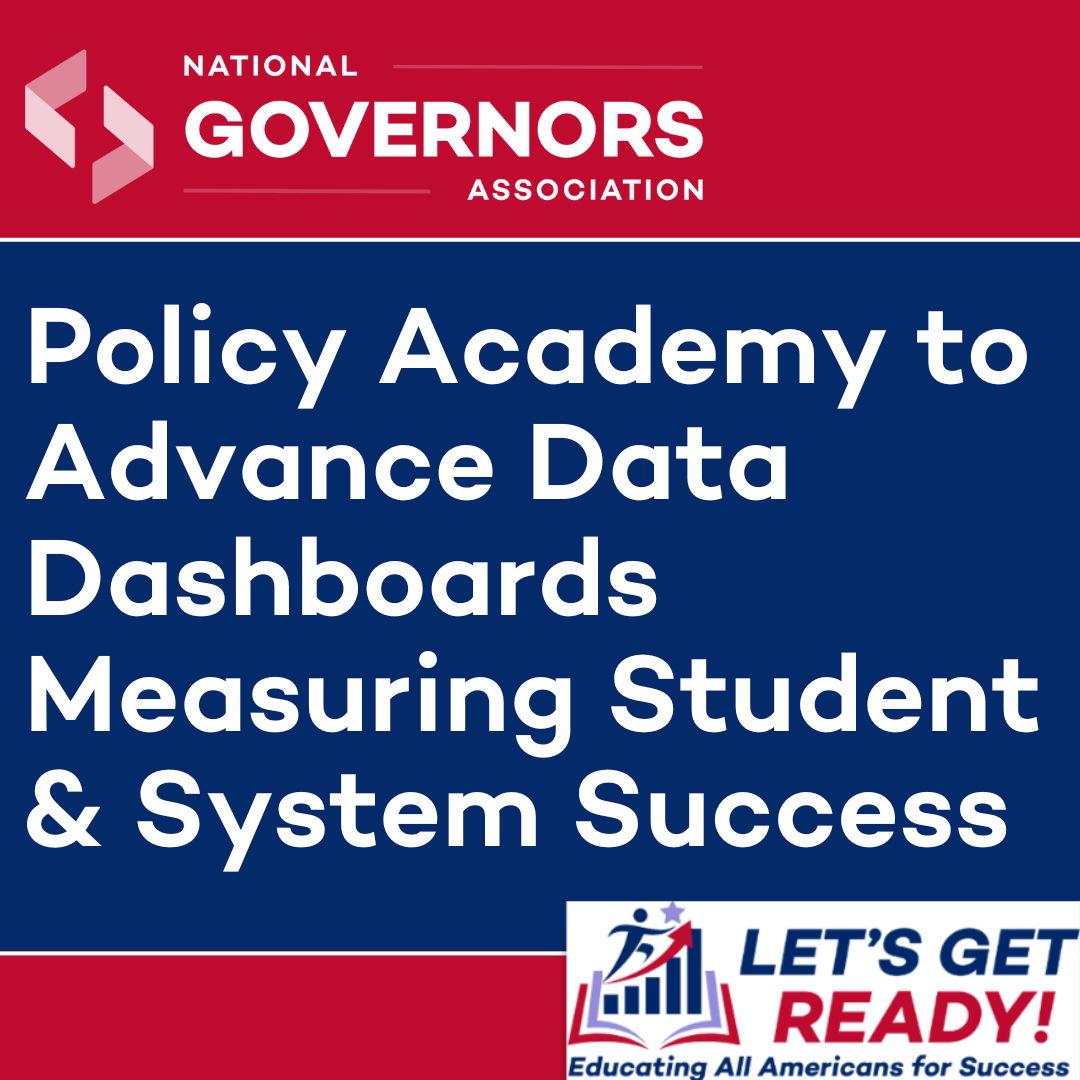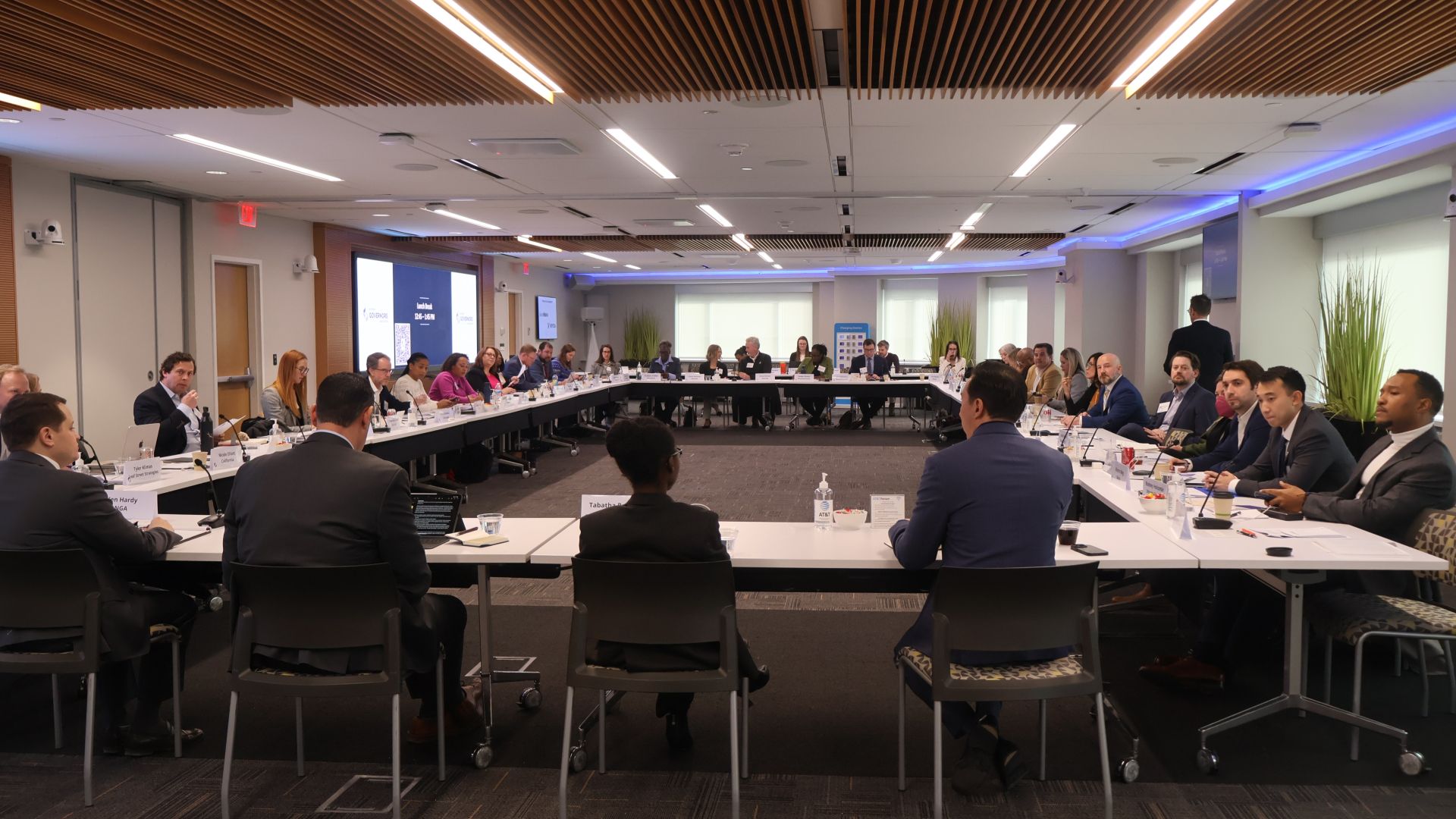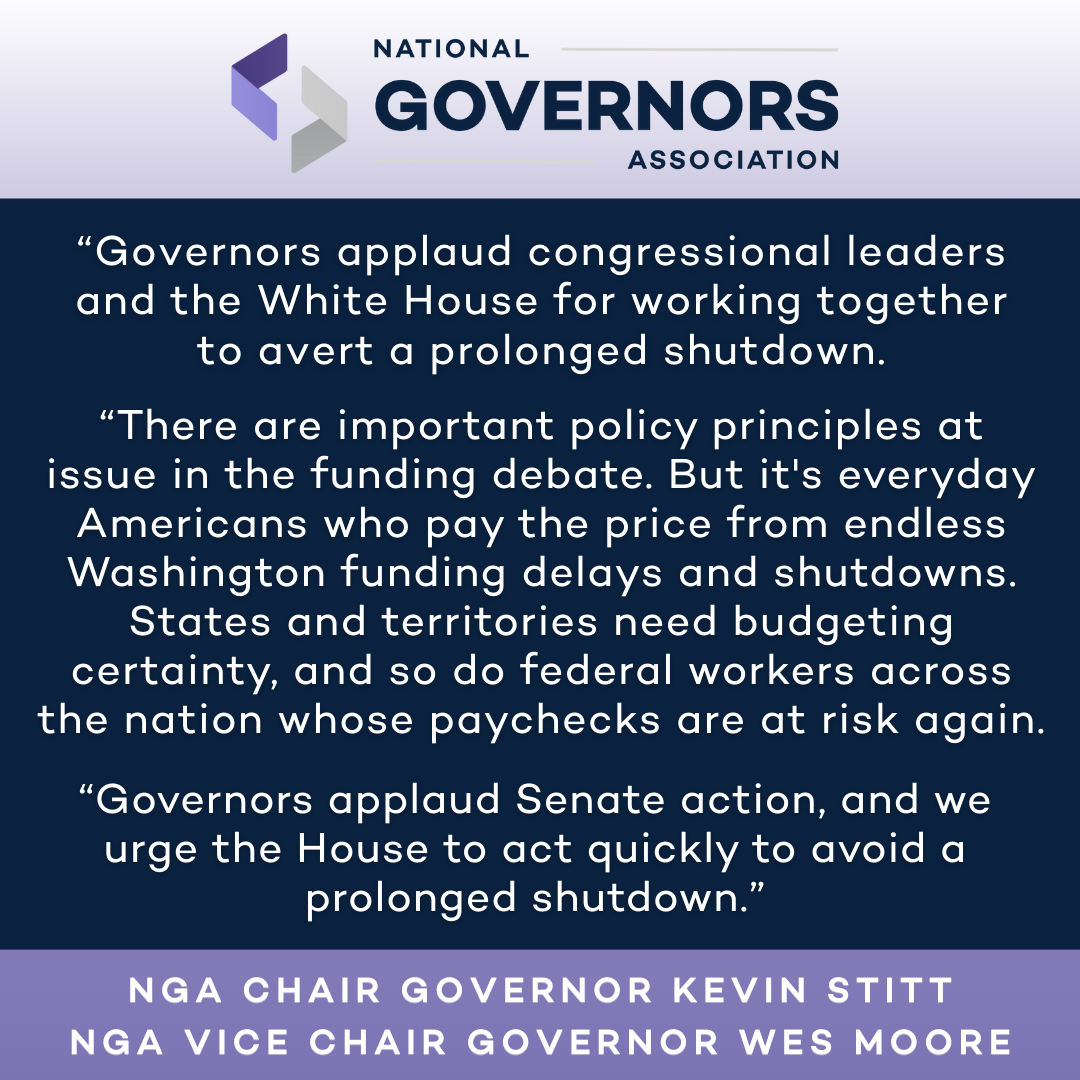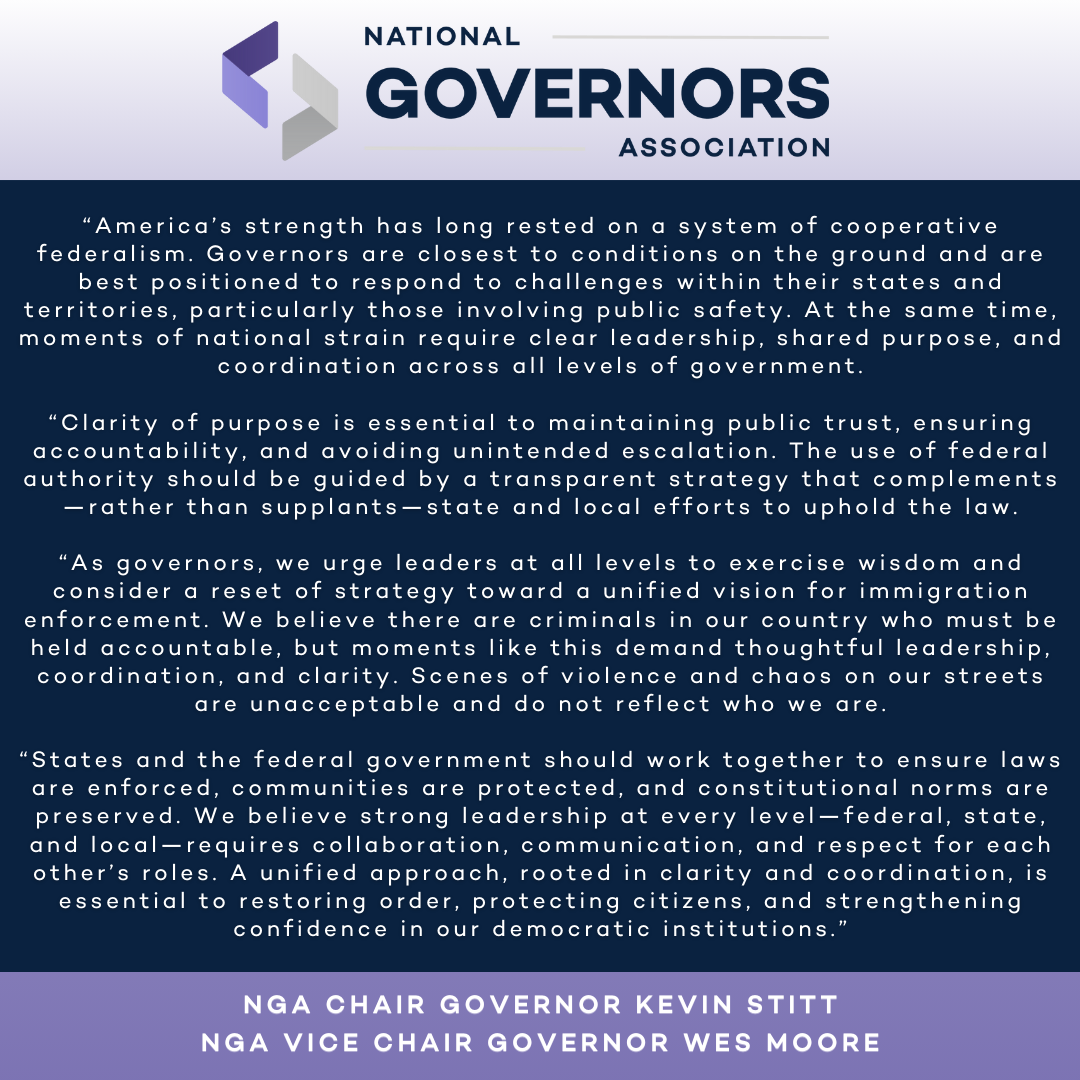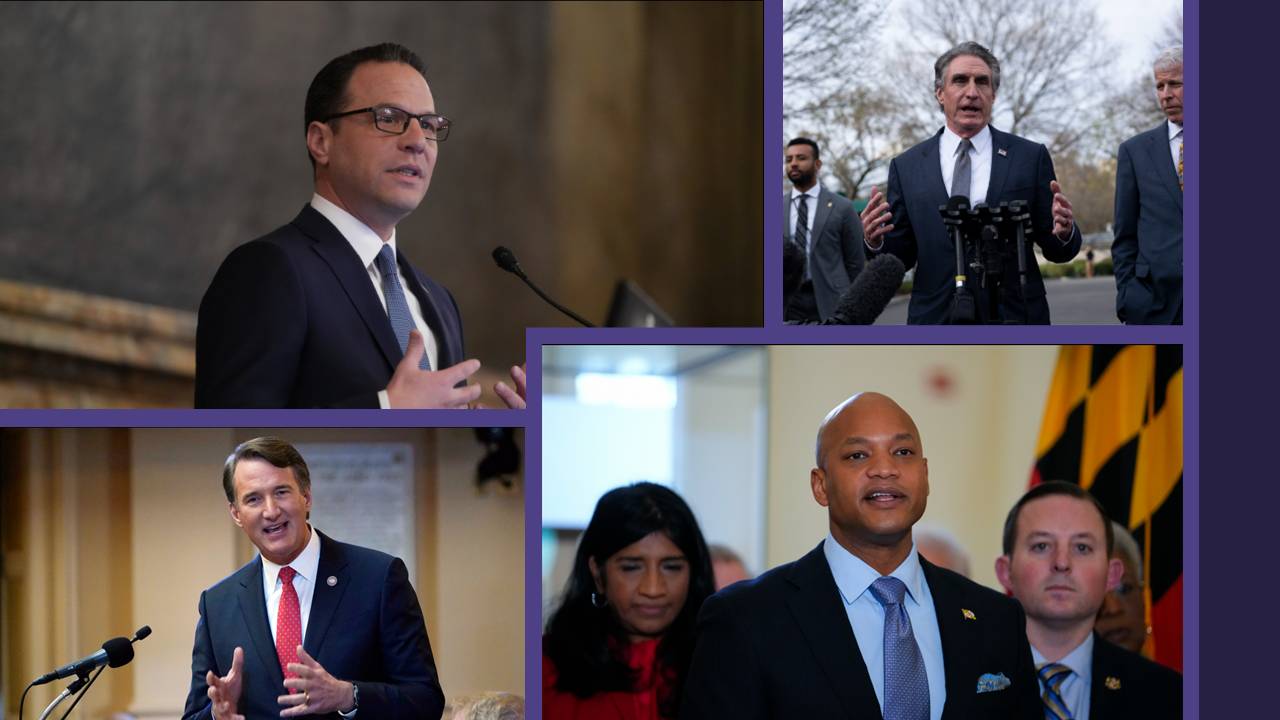It’s critical for Governors and human services leaders to navigate complex issues, especially when political tension feels high. In some scenarios, successful implementation can rely more on framing and relationship management than policy details. Persuasion and coalition-building are critical skills for any leader, and Governors seek tools and best practices for consensus-building to grease the wheels to gain momentum aligned with their priorities. For the June Human Services Policy Advisors Institute (HSPAI) call, advisors were joined by the Convergence Collaborative on Supports for Working Families, an ideologically diverse working group driving toward consensus to identify tools for flourishing families.
A recording is available here. Please contact the NGA Children & Families team for the password.
Speakers:
- Mariah Levison, President and CEO of Convergence
- Abby McCloskey, Director of the Collaborative to Support Working Families
- Lina Guzman, Chief Strategy Officer at Child Trends and Director of the Hispanic Institute
- Josh McCabe, Director of Social Policy at the Niskanen Center
- Patrick Brown, Fellow at the Ethics and Public Policy Center
Key Recommendations for State Leaders:
- Break the mold of formal, structured connection: Formal committees or working groups can entail strict (and often public) convenings, which may constrain genuine or authentic connection and relationship-building opportunities. Fostering opportunities for informal, casual, and conversational interactions can create an environment for open and honest dialogue.
- Vulnerability can be an asset: In lieu of data or statistics, generate collegiality by anchoring discussions around personal stories to create space for members of disparate perspectives to connect with peers on a personal level.
- For example: As part of Virginia’s Right Help, Right Now mental health initiative, Gov. Youngkin’s team took deliberate efforts to boost the knowledge of the mental and behavioral health system with external stakeholders, and leverage the personal testimony of individuals with experience with the mental health system and specifically recruited some of the “loudest voices” – the changemakers in the community to cultivate buy-in before scaling up broader population.
- Obtaining internal staff buy-in to policy changes through deliberate consensus-building efforts can be an effective tool to combat burnout.
- “Change burnout” is rampant among human services workers following several national and local emergencies and funding/policies changes
- Generating internal buy-in and performing consensus-building exercises is more important than ever to help safeguard policy priorities and gubernatorial legacy items, especially as administrations approach elections and leadership transitions.
- Identifying varied downstream impacts can help foster additional different audiences and help bridge disparate stakeholders that have common interests (e.g. improving parent’s caregiving capacity (including through community resources can improve child welfare outcomes).
The Convergence Collaborative on Supports for Working Families
Background on Convergence
- Convergence is an advisory organization that bridges divides to solve critical social issues through collaborative problem-solving across ideological, political, and cultural differences, tackling topics including child care, health and welfare, and civic engagement.
- Utilizes an evidence-based method, Collaborative Problem Solving, to bridge divides across differences, focusing on building trust, relationships, and a shared understanding of issues to enable honest dialogue about tense topics.
Collaborative on Supports for Working Families
- The Collaborative on Supports for Working Families is a group of 32 ideologically diverse thought leaders working together to create family policy to support the flourishing of low-to-moderate income families with young children (0-8).
- Over the course of 2023-2024, the group developed a Blueprint for Action for federal and state policymakers, employers, and philanthropy to move towards family flourishing. Policy recommendations were split into four buckets:
- Changing the narrative on family flourishing
- Rethinking cash support for families
- Ensuring more high-quality care options for children, both within and outside of the home
- Supporting parents with infants and adopted children
Resources:
- Convergence Collaborative on Supports for Working Families Blueprint for Action
- Convergence’s online resource list that contains videos and blog posts about understanding conflict and engaging in productive discussion
- ELearning course from Convergence on overcoming division that is free for NGA members to pilot in July – just indicate NGA connections in the online form
- From Conflict to Convergence, a “how to” guide for building consensus on complex and contentious issues

